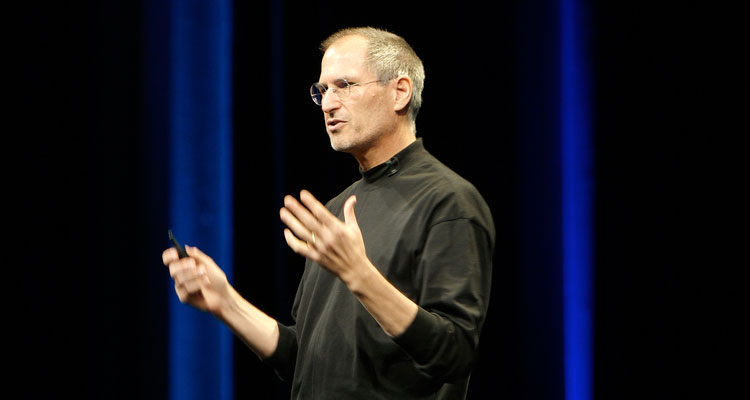When Apple Computer co-founder and ground-breaking inventor Steve Jobs was 11 years old, he wanted to drop out of school. But it wasn’t for lack of academic success. Jobs was just one of many smart kids whose unique interests, intellect, and talents prompted bullying and teasing from other kids.
An intelligent student, Jobs had enjoyed taking an advanced fourth grade class taught by a supportive teacher at his elementary school. But when he tested at a tenth grade level, the school recommended he skip the fifth grade and begin attending middle school. “The transition was wrenching,” explains Walter Isaacson, author of the best-seller biography Steve Jobs. Steve was younger, smaller, and smarter than his classmates, who continually harassed and picked on him.
Tired of the relentless bullying, he came home from school one day and insisted his parents move him to another school. “When they resisted, I told them I would just quit going to school if I had to go back to Crittenden,” Jobs told Isaacson. “So they researched where the best schools were and scraped together every dime and bought a house for $21,000 in a nicer district.”
Fortunately for iPhone fans everywhere, Jobs thrived in his new school in Los Altos, California, where he could develop his interest in electronics and his classmates seemed more accepting.
Kids Will Suppress Skills to Fit In
Kids tend to put a high value on looks, popularity, and being in the mainstream, so exceptionally intelligent kids or those who are outstanding in other ways can be ostracized and feel isolated. As a result, smart kids who are skilled and talented may struggle to fit in. A study in the UK found that more than 90 percent of surveyed children reported being bullied or seeing someone being bullied because of their intelligence or talent, and nearly half of those surveyed (49.5 percent) “played down a talent for fear of being bullied.”
Instead of enjoying their exceptional skills and intelligence, many kids are trying to fit in by achieving less. “It’s unacceptable that rather than celebrating their talent, they feel that they have to hide their gifts, purposely underachieve in crucial subjects and miss out on things they enjoy because of bullying,” commented Ross Hendry, chair of the Anti-Bullying Alliance.
As adults, these previously picked-on kids often succeed and are heralded for the very talent and intellect that made them so unpopular in school, (although even adults can miss the brilliance behind unique individuals). Astrophysicist Neil deGrasse Tyson, who gained fame and popularity as the host of Nova Science Now on PBS had a similar experience as a child. “I imagined that I could be ‘Geek Man,’ . . . and I would fly around the world protecting geeks from the bullies out there,” he tells Business Insider, “from the football quarterback . . . and the ones who would make fun of us and call us four-eyes, and I would be the defender of the geek honor.” In a way, he’s achieved that dream as he continues to popularize science to a mainstream audience. “You should all know by now that if you accuse me of being a nerd or a geek, I’ll simply take it as a compliment and move on,” he tweeted to his fans.
Finding Freedom to Be Exceptional
Of course, it’s hard to move on from such mistreatment if you’re a vulnerable child who really wants to fit in with the rest of the class. Many smart kids who are exceptional students have chosen an online learning environment because there they can enjoy the freedom to be themselves and excel in the areas that interest them the most. With online learning, the focus is on academics and reaching one’s potential.
Many K12 students who switched to an online school so they could shine as successful students without fear of social repercussions have shared their experiences at K12’s What’s Your Story site.
Abby, who enrolled in a K12-powered school last year, prefers the more challenging learning environment of her new classroom. Abby says she was bullied at her previous school because of her “academic success, race, and love for knowledge.” In addition to being “bored” at her previous brick-and-mortar school, she says the other kids left her feeling “alone and unwanted.” After she started the K12 curriculum she wrote, “thanks to K12, I feel welcomed, wanted, and cared for, with the pace and challenges I need academically.”
Savannah also found that being an advanced learner could lead to experiencing bullying in the classroom. When she began taking an eighth-grade math class in the fifth grade, her classmates resented her knowledge. “Kids always wanted me to give them answers, and I always said no and so they would find things to make fun of me,” she recalls. Savannah says switching to a virtual school has been life-changing for her. “I was able to focus on my school work and not be bothered by other people,” she writes.
Whether at an online school or a traditional public school, all kids should be free to feel good about their uniqueness and their individual talents. “Believe it or not, I feel like a proud ‘nerd,’” Isabella wrote about her experience after switching to a school that better accommodated her needs as an advanced learner. “I just caught onto things faster than the other students,” she explains, “I honestly did not enjoy how ‘advanced’ I was five years ago.”
For more information about school choice and online learning options, visit k12.com.






















































































































